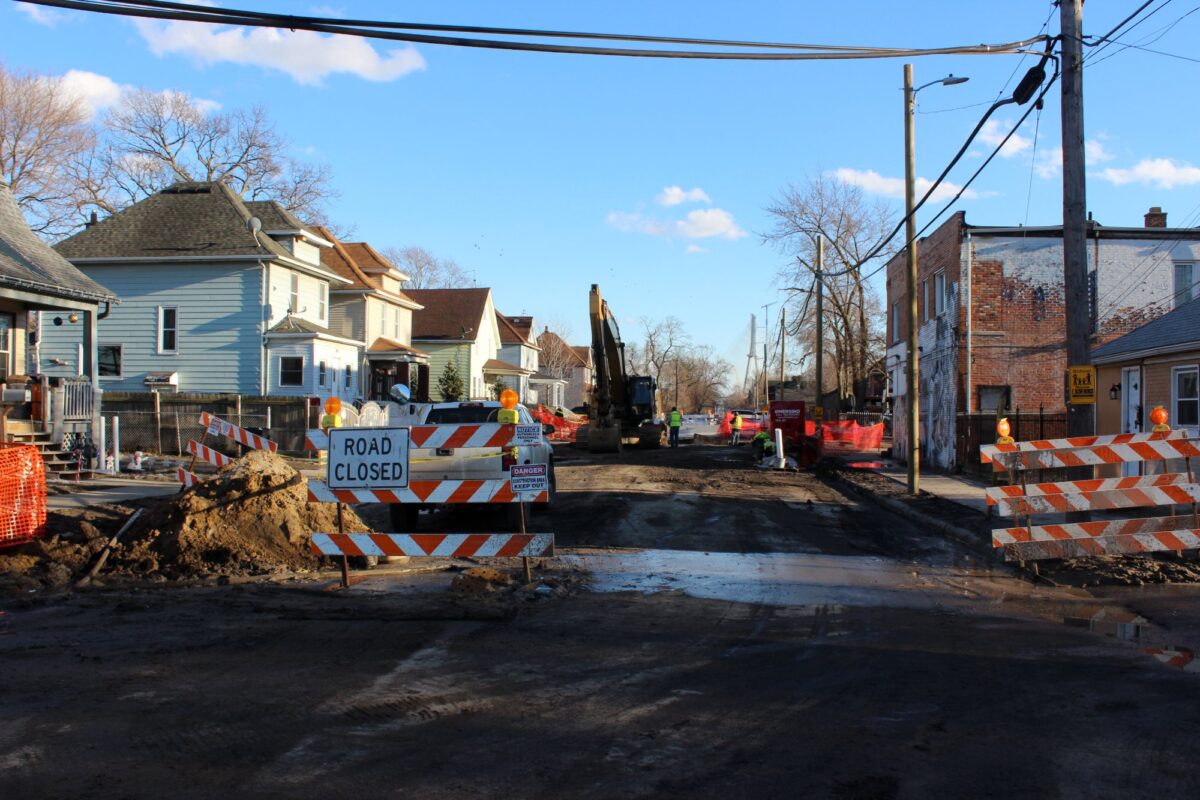Overview:
-Repairs on the Great Lakes Water Authority's 93-year-old water transmission main are complete.
-The GLWA main will be back in service 'shortly,' and the Detroit Water and Sewerage Department's 6-inch water main is also fixed.
-Residents can return home once utilities are restored.
The water pipes are repaired in the Southwest Detroit neighborhood that just weeks ago was frozen in floodwaters from a 54-inch water main break.
As of Wednesday, repairs were completed on the Great Lakes Water Authority’s 93-year-old water transmission main.
Water quality testing for bacteria is underway, and the GLWA main will be back in service “shortly,” Gary Brown, director of the Detroit Water and Sewerage Department, said at a Thursday press conference.
DWSD’s 6-inch water main is also repaired, ensuring water service to all homes in the neighborhood, he said. DTE Energy is scheduled to repair its gas main the week of March 10.
Residential home repairs underway
By early next week, every known furnace, hot water tank, and water issue will be fixed, Brown said. Residents can return to their homes once electricity, heat, and hot water are restored, and contractors are on track to replace 40 furnaces and hot water tanks by the end of Thursday, with 30 more to go over the weekend, he said.
One hundred and eighty six people remain in hotels, and 12 returned yesterday to repaired homes, Brown said.
“They’re tired of being at the hotel. They have their pets. They want to get back in their homes. We want to get them back in there as quickly as possible.”
Smaller “punch list” items can be done while people are in their homes, he said.
Claims process prioritizes vehicles
The claim process for 171 residents, including 89 vehicles, is being expedited. On Friday, a third-party administrator will be at the Patton Rec Center to address the community’s questions about the claims process.
For the vehicles that had water damage above the floorboards, Brown said the city will turn them over to salvage and work with the homeowners to pay a fair market value. For the vehicles that can be repaired, Brown said the city will work out a price with homeowners, as “it’s important to get the cars back so people can get to work.”
Sewers cleaned out, GLWA to invest in preventative maintenance
Brown’s biggest concern is the “sheer amount of mud and dirt” that has congested the sewer system, he said. With spring approaching and with it the likelihood of heavy rain, GLWA cleaned all sewers in the neighborhood Wednesday to build capacity for rain, Brown said.
GLWA “will probably” invest nearly $20 million to prevent future pipe breaks, the city official said. An asset management program will be helpful in identifying “the worst of the worst pipes” to do preventative maintenance, which is cheaper than emergency repairs, he said.
Climate change could trigger more water main breaks in the future, as Planet Detroit detailed in a report Wednesday, and increasingly volatile winter temperatures and prolonged summer heat may be creating problems for Detroit’s aging water infrastructure.
How residents can help prevent flooding
To help prevent flooding, Brown recommended that residents have a shutoff valve for their water. Storm drains should be cleaned every two years, Brown said, and residents should disconnect downspouts to prevent water from entering their home’s foundation. For more flooding safety tips from the city, read here.
“There’s nothing we could have done to have prevented the break,” Brown said. “I expect this weekend that we are going to get a lot of work done.”
MORE FROM PLANET DETROIT
DTE Energy secures $242 million electric rate increase
In August, Michigan Attorney General Dana Nessel filed testimony asking the MPSC to approve an increase of $158.4 million, a roughly 72% reduction of DTE’s request that would have represented a 2.5% jump in the average utility customer’s bill.
VOICES: Time for Congress to step up for the Great Lakes
In Washington, D.C., Great Lakes Day unites Congressional leaders in bipartisan support for the Great Lakes, yet expert Mike Shriberg warns the Great Lakes Restoration Initiative alone cannot safeguard water quality.
Wayne County radioactive waste trial ends with attorney’s warning over future Manhattan Project shipments
Wayne Disposal attorneys argue plaintiffs failed to prove the landfill is harming residents, while lawyers for local communities say it’s unreasonable to dispose of radioactive waste in a highly populated area near the Great Lakes.





